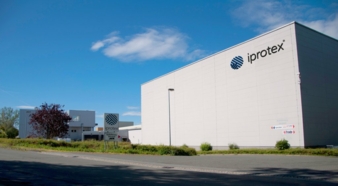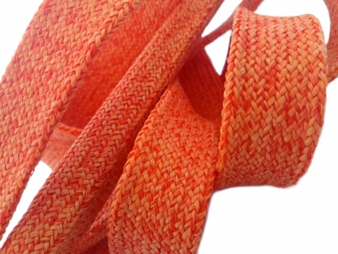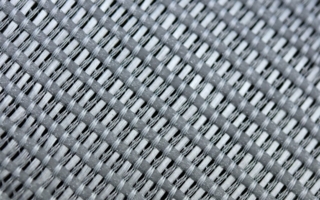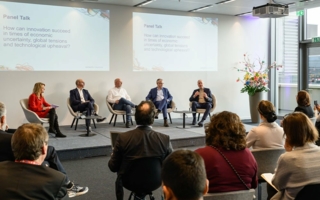15/11/2018 – Iprotex — auf Deutsch lesen
In the beginning there were four ...
.. braiding machines. 20 years ago Timo Piwonski had a business idea. Today, the entrepreneur has two businesses in Münchberg and Crimmitschau, Germany
at the age of just 23, Timo Piwonski had a business idea. His vision was to make “technical textiles for industry” with a focus on the automotive and automotive supplier sector. Taking a leap of faith, he became self-employed. Today, the entrepreneur has two businesses in Münchberg and Crimmitschau, Germany, employing nearly 170 staff and generating an annual turnover of more than EUR 20m.
From 4 to 100 in 20 years
Born in the small town of Kronach in northern Bavaria, Timo Piwonski started his career as an apprentice industrial management assistant. On completing his training, the then 23-year-old joined forces with a colleague, taking the plunge into self-employment in 1999. Together they founded iprotex, a genuine little start-up headquartered in Wallenfels, near Kronach.
It began with a bank loan of 300,000 deutschmarks, for which his parents had to re-mortgage their home.
The two young entrepreneurs bought four braiding machines, rolled up their sleeves up and set to work. In the early days, the company turned over barely enough to cover the rent for the company premises.
Standing at their machines at 5 am every morning, they would spend the afternoons knocking on company doors to drum up some business.
One of their first major customers was Leoni (wires, cables, wiring systems), with other suppliers to the automotive industry following soon after.
In 2001, the company moved to its current headquarters in Münchberg where it started producing textile cable sleeves as well as technical textiles for a diversity of different applications.
Business took off and in 2002 a second company called innotect was established. Based in Saxony’s Crimmitschau, it specialises in braided sleeves and heat protection sleeves that protect cables and wires from mechanical or heat damage.
Around 75 percent of sales are accounted for by major suppliers to the automotive industry (Leoni, Conti, Dräxlmaier) and the car manufacturers themselves.
Customers include major players such as VW, Audi, Porsche, Daimler, Volvo, Peugeot and Renault.
From Münchberg to the rest of the world
Around 80 staff are employed at each of the company headquarters in Münchberg and Crimmitschau. Established in 2013, the iprotex facility in Shanghai, China, produces exclusively for the Asian market. Driven by the desire to be close to its customers, Iprotex also operates a production facility in Tunisia where many of the major car manufacturers are located. By the end of 2018, iprotex will also have a production facility up and running in Mexico.
The enterprise is additionally supported by several distribution offices dotted around the world. Business is buoyant, and profits are healthy.
And yet, the situation remains challenging. Piwonski notes that the pressure to keep costs low and to remain innovative is huge, adding, “The automotive industry certainly keeps its suppliers on their toes.”
Electric cars?
As the automotive industry starts to embrace the electric car, Piwonski has no concerns about his products. In fact, he has even identified potential new applications, such as the need to protect the battery from heat and cold to preserve battery life and charging capacity.
In addition, the new high-voltage wiring systems will require completely new wiring protection. To increase range, car manufacturers want to ensure their electric cars are as lightweight as possible. “…and textiles are light,” states Piwonski. In its in-house development department, the company currently employs eight textile engineers and technicians, focusing on areas such as mechanical strength, temperature resistance, flexibility and weight. The materials used include man-made fibres, fibreglass, aramid, carbon and basalt. The more than one hundred braiding machines operate in three shifts almost fully automatically.
The company is currently on track to achieve annual “organic growth” of five to ten percent over the coming years.
This organic growth has many facets. Not only are new operations constantly springing up abroad, but there is also huge potential for expansion in the e-car field. In addition, a solar-energy plant is currently being installed at the facility in Münchberg to supply the machinery with its own electricity.
Managing Director Piwonski certainly has plenty of plans for the future!





